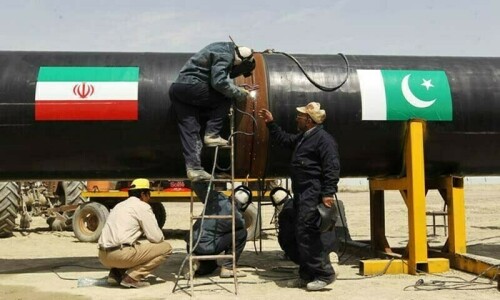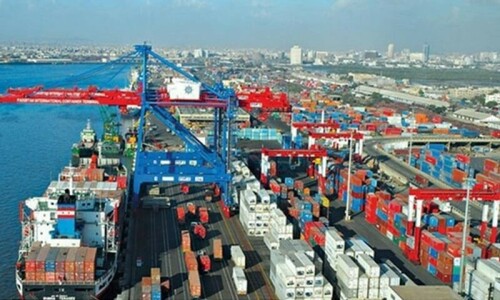The United States has stated that “helping Pakistan address its energy shortage crisis is a priority” for Washington.
The Pakistan-Iran gas pipeline is a long-term project between Tehran and Islamabad, and has faced delays and funding challenges for several years. In February, the government had decided to start building an 80-kilometre segment of the pipeline, extending from the Iranian border to Gwadar, to ward off $18bn potential penalties from Tehran.
On Tuesday, Washington had said that it did not support the gas pipeline project from going forward and cautioned about the risk of sanctions in doing business with Tehran.
The remarks had come after Petroleum Minister Musadik Malik had said that Islamabad would seek exemption from US sanctions over the gas pipeline project.
“We will seek exemption from US sanctions. Pakistan cannot afford sanctions in the gas pipeline project,” Malik had told journalists during an informal chat.
This was in contrast to the stance put forward by the Foreign Office, whose spokesperson told a press briefing last week that there was no room for any discussion or waiver from a third party.
The issue had become a hot topic after US diplomat Donald Lu, during a detailed testimony before a US House subcommittee , said that Washington was committed to preventing the construction of the pipeline. It was here that Lu noted that Islamabad had not applied for a waiver for any US sanctions that may be attracted by the project.
In a press briefing on Wednesday, US State Department’s spokesperson Matthew Miller was asked about the US warning regarding the pipeline as the reporter highlighted that “it seems like United States left it at nowhere to meet up with energy crisis”.
In his response, Miller said that helping Pakistan address its energy shortage crisis was “a priority for the United States”.
“We have supported the addition of approximately 4,000 megawatts of clean energy capacity in Pakistan. Our projects have dramatically increased the nation’s electricity capacity, today powering the homes of millions of Pakistanis,” he said.
“Additionally, through the United States-Pakistan Green Alliance — a transformative initiative between our two countries — we are working together to address today’s most pressing environmental challenges, especially around water management, climate-smart agriculture, and renewable energy,” he said
















































Dear visitor, the comments section is undergoing an overhaul and will return soon.